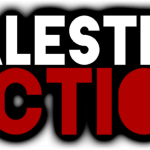The AEJ Hungary has expressed increasing concern about the survival of the country’s remaining independent media “still committed to critical and fact-based journalism rather than serving the propaganda aims of the ruling illiberal party coalition”.
It notes that although there are far worse situations in other parts of the world it was dismayed to see Hungary now ranked 85th in Reporters Without Borders’ Press Freedom Index of 180 countries.
Of antelopes and tigers: the precarious life of Hungary’s “real” media
A Declaration by the Board of the AEJ Hungarian Section
May 20, 2022
Shortly after the fourth consecutive overwhelming victory of Victor Orban’s Fidesz Party in April’s general elections, the all-powerful Media Council rejected the application by the tiny alternative Tilos Radio station — with approximately 6-8,000 listeners – to renew its license this September. Tilos (Prohibited), which has a proud anticommunist pedigree, will probably be forced to become Internet-only, as was the case with the much bigger and still popular Klub Radio.
Of course handsome legal arguments were set out in the official text of the decision saying that Tilos did not comply with the requirements of the tender. According to its managing director, Gábor Csabai, that is simply unachievable, because Tilos is operated on a voluntary basis without a cent of advertising revenue. It cannot match the big for-profit audiovisual companies which have the staff to meet onerous rules on documenting every minute of their output, keeping up the right ratio of speech and music, and of Hungarian and foreign music.
Mr. Csabai said it was “like asking antelopes to compete with tigers.”
In Hungary’s self-styled “illiberal democracy” independent-minded journalists have good reason to see themselves as defenceless prey in an environment of predators. The Board members of the AEJ’s Hungarian Section are increasingly worried about the survival of the remaining segment of Hungary’s media sector 20 – amounting to about 20 percent of the whole – which is still committed to critical and fact-based journalism rather than serving the propaganda aims of the ruling illiberal party coalition. We know that there are much worse media situations all over the world, in Russia, Turkey, Azerbaijan and elsewhere – and from Chile to Saudi Arabia. But we are dismayed to note that Hungary is now ranked 85th in Reporters Without Borders’ Press Freedom Index of 180 countries. The country’s ranking is the lowest among EU member states apart from Greece and Bulgaria.
Across the world, news media organisations have suffered from the collapse of long-standing business models and have been forced to adapt to survive. But Hungary stands out as a negative example for others in terms of the extent of the “media capture” which means that virtually all regional print media and radio stations are in the hands of government-friendly owners. The stifling of free and independent media voices has been well-known and publicised ever since the illiberal political structure of Fidesz first emerged. The subordination of public service media to the political and ideological aims of Fidesz’s power in the recent election campaign was even criticised by a well-known Hungarian right wing publisher and columnist. In practice, opposition parties and its leaders were almost entirely shut out from appearing on Hungarian Television.
The Association of European Journalists, together with other professional organisations, condemns the misuse of public funds to promote government propaganda in Hungary, as in Poland and elsewhere too; as well as the grotesque distortion that comes from systematic market regulation in favour of government friendly media. We insist that journalists must be able to carry out their work without intimidation and so fulfil their public watchdog role – as was underlined by the Council of Europe’s Secretary General, Marija Pejčinović Burić, in her statement marking World Press Freedom Day on 3 May.
Democratic governments, parties and institutions everywhere need to be aware of the dangers posed by the spread to other EU countries in recent years of key elements of Fidesz’s model for media control and capture by politicians, government loyal business people and oligarchs. We heartily agree with Barbara Trionfi, the Executive Director of IPI, who has urged a strong and principled response from the world’s democracies „to push back against a wave of authoritarianism around the world that threatens fundamental rights, including press freedom.”
Can the destructive engine of media capture be stopped, and if so how? What is certain is that the issue is growing more urgent all the time. Recently another small left-wing weekly newspaper called 168 Óra joined a host of other titles in being forced to give up its print edition and retreat to being an online only publication. It is skinny consolation that many print media are vanishing in other parts of the world as well.
We are pleased to acknowledge US President Joe Biden’s public statement that a free press now matters more “than it ever did in the last century”. But that assessment is open to challenge, since press freedom has been of existential importance throughout the long struggles for democracy in the Western hemisphere. And the burning question remains: what more, other than encouraging statements, are democratic governments prepared to do to halt and reverse media capture in countries like Hungary?
We say that all advocates of independent journalism within Hungary as well as international institutions abroad, especially those of the European Union, now have a responsibility to use every legal means available to stop the further erosion of democratic institutions, media pluralism and liberal values.
Antelopes need to be protected against hungry tigers wherever they are, if this endangered species is to be saved and its future assured.








